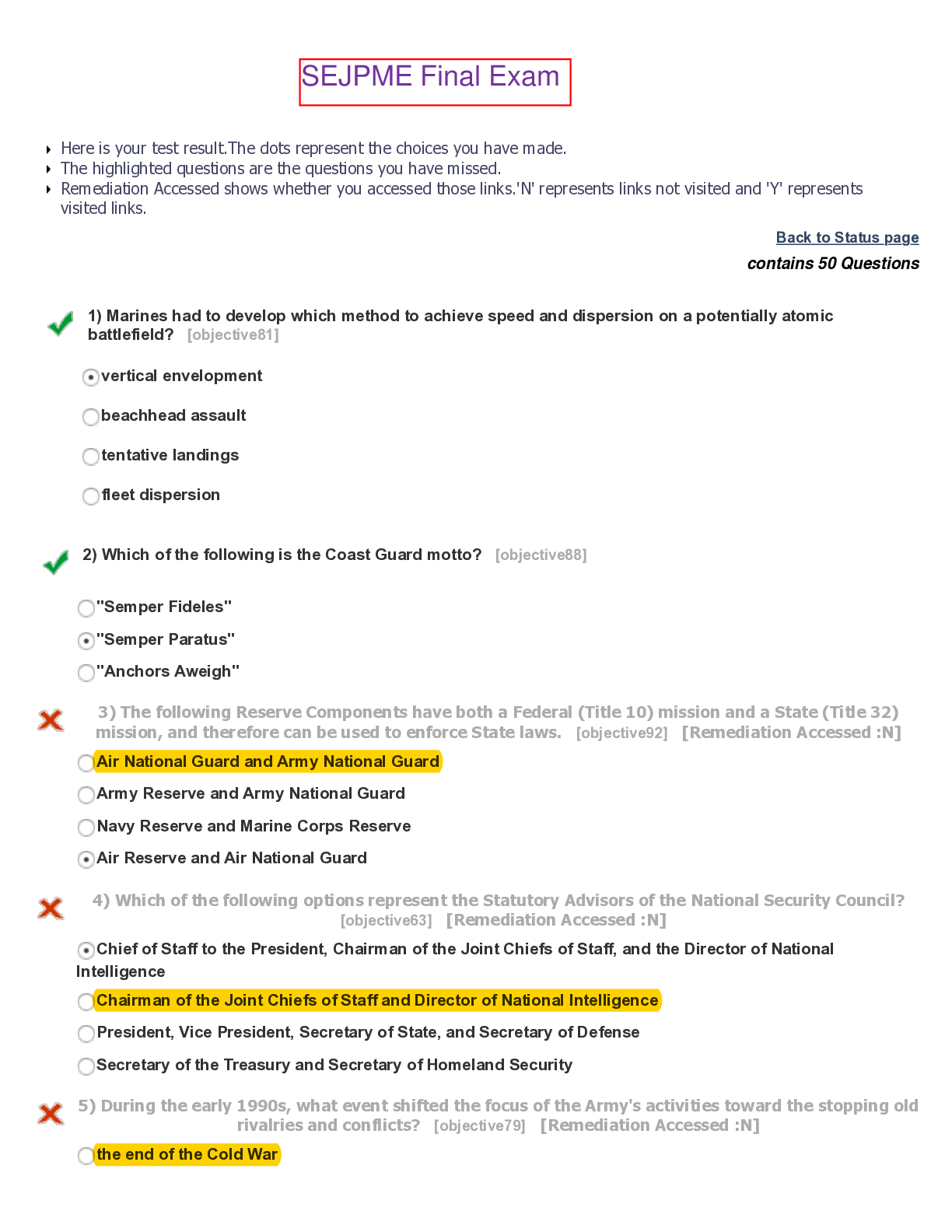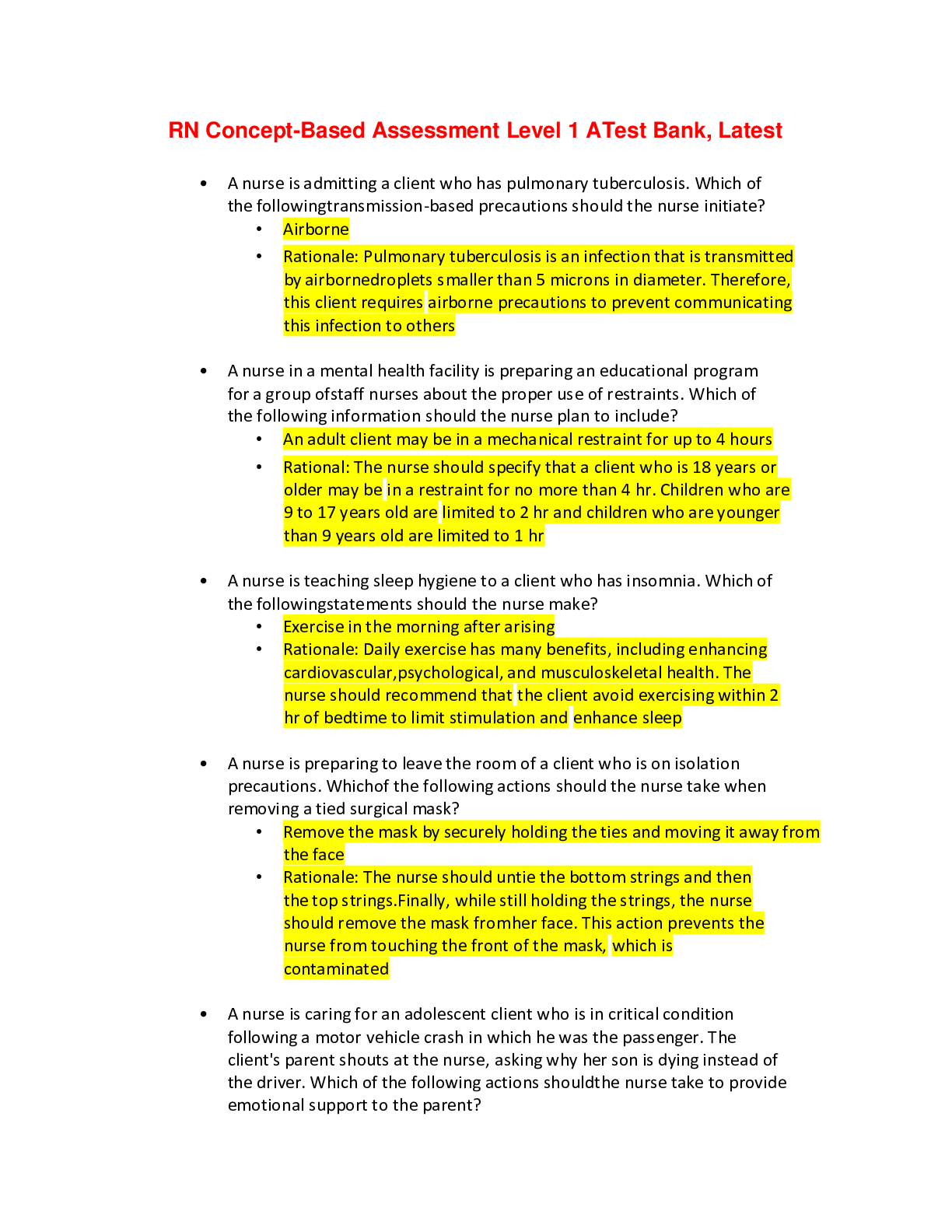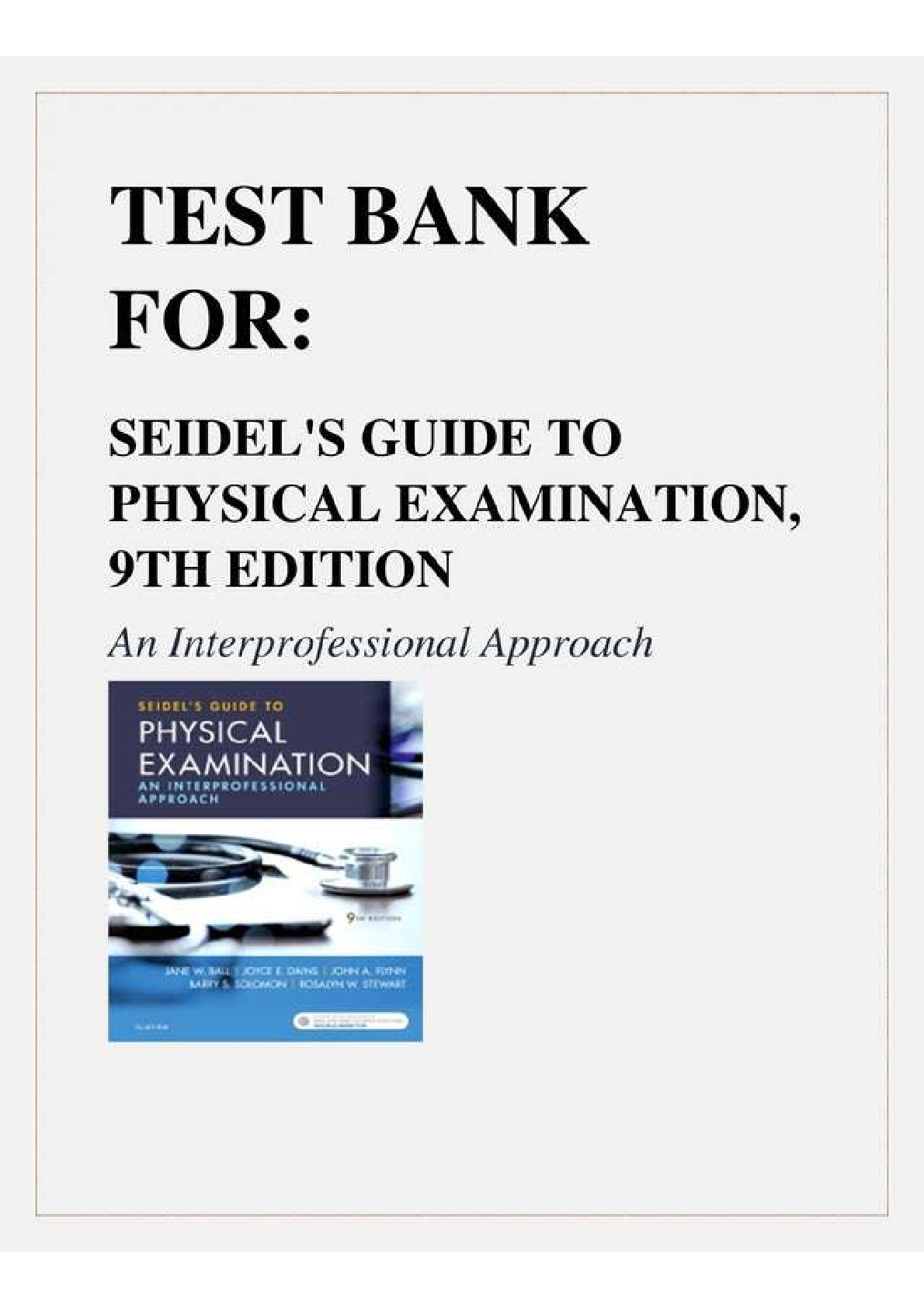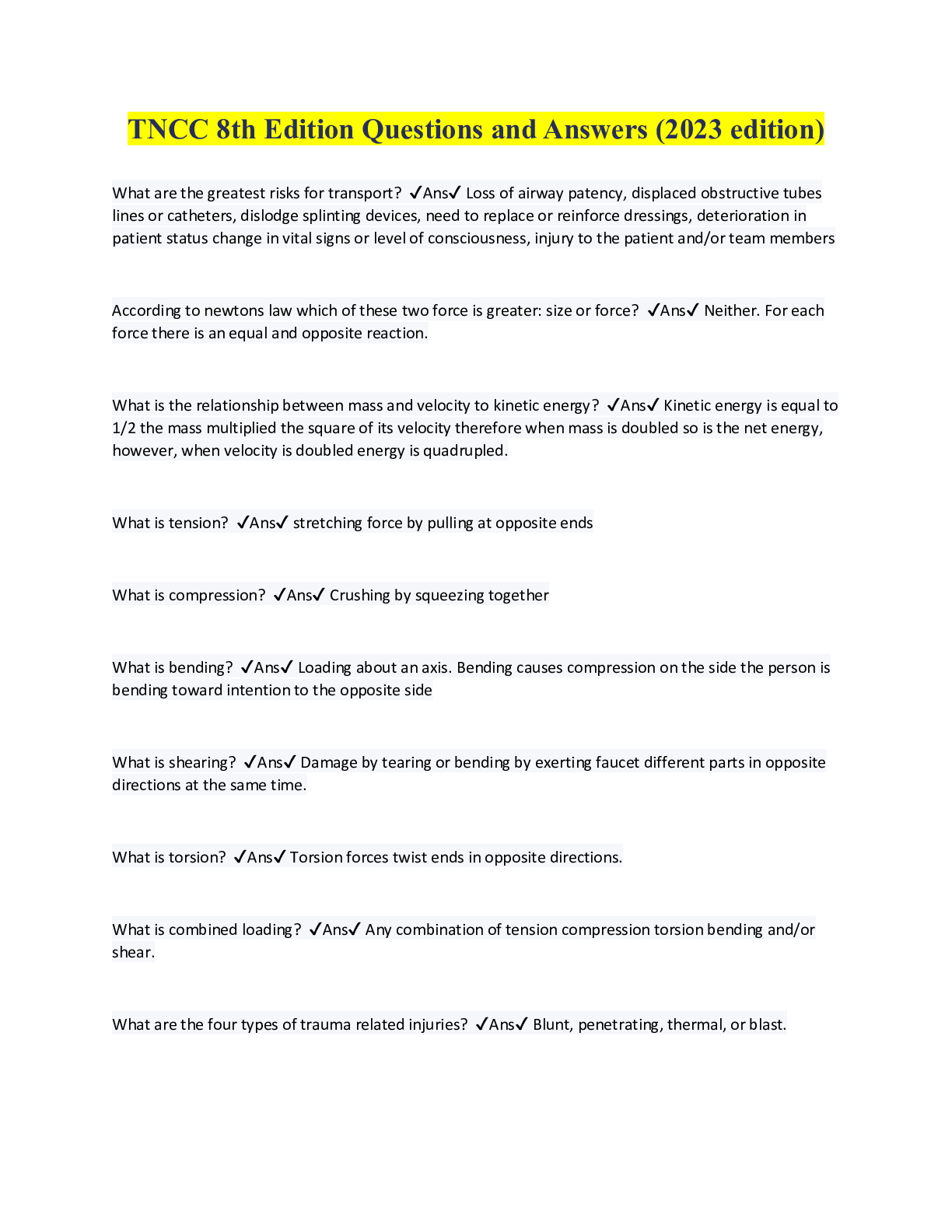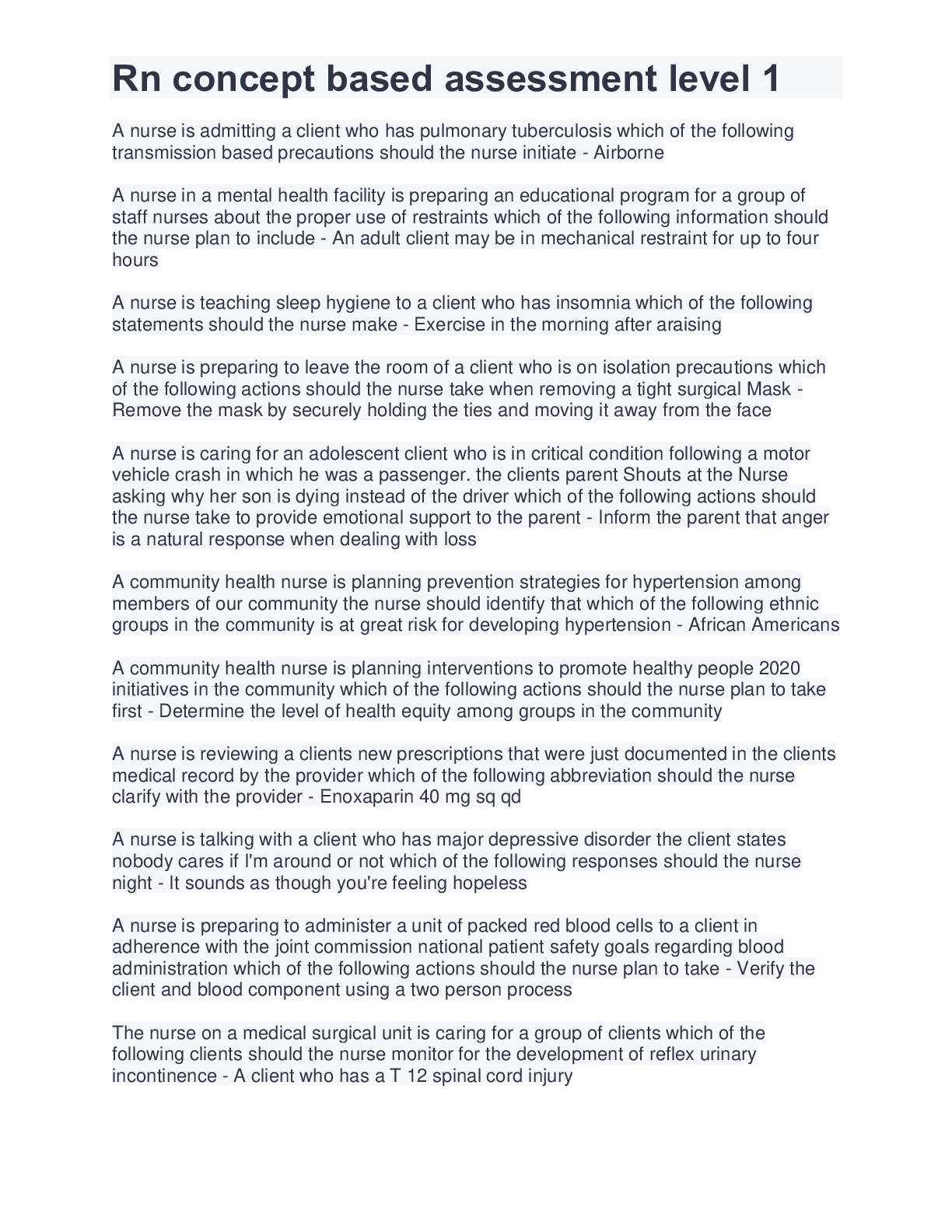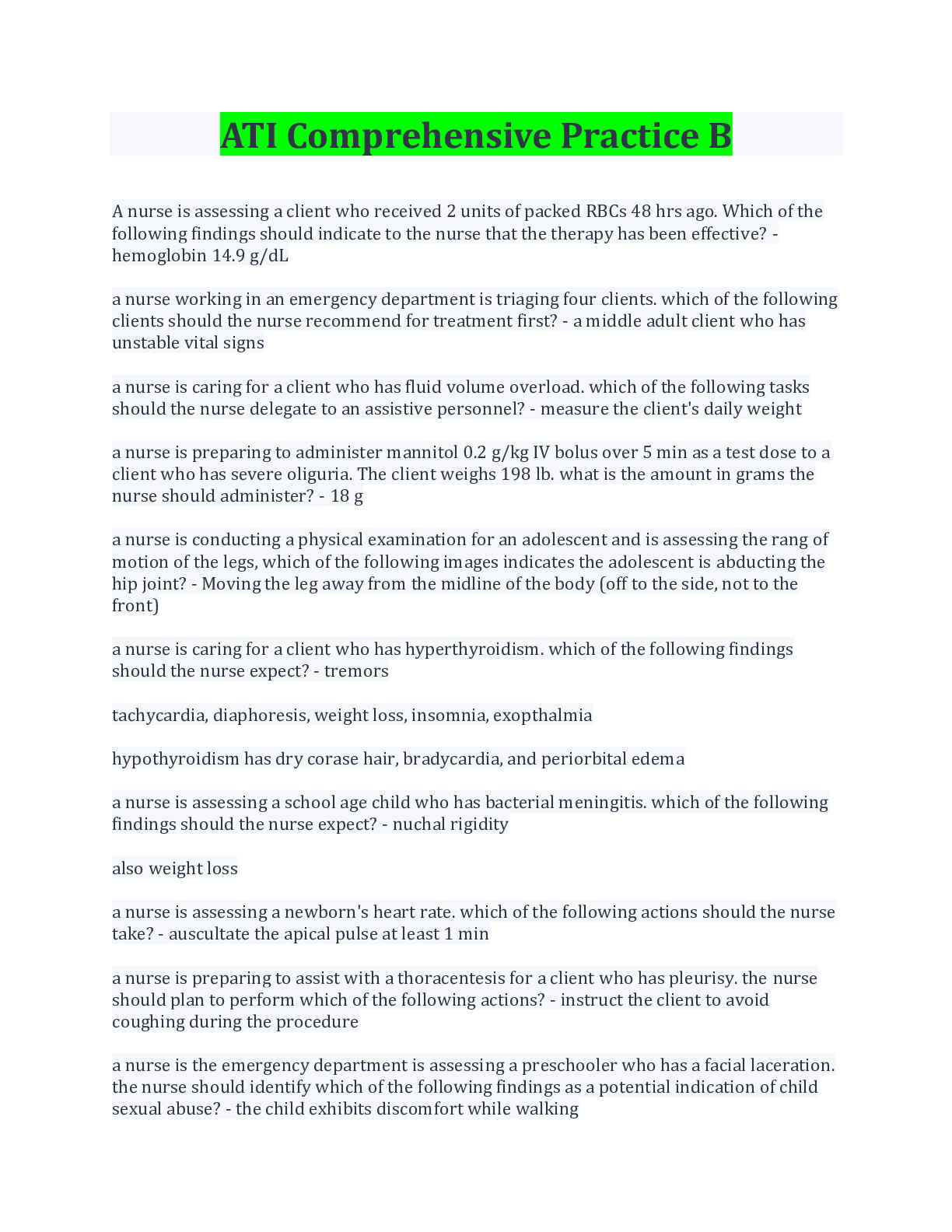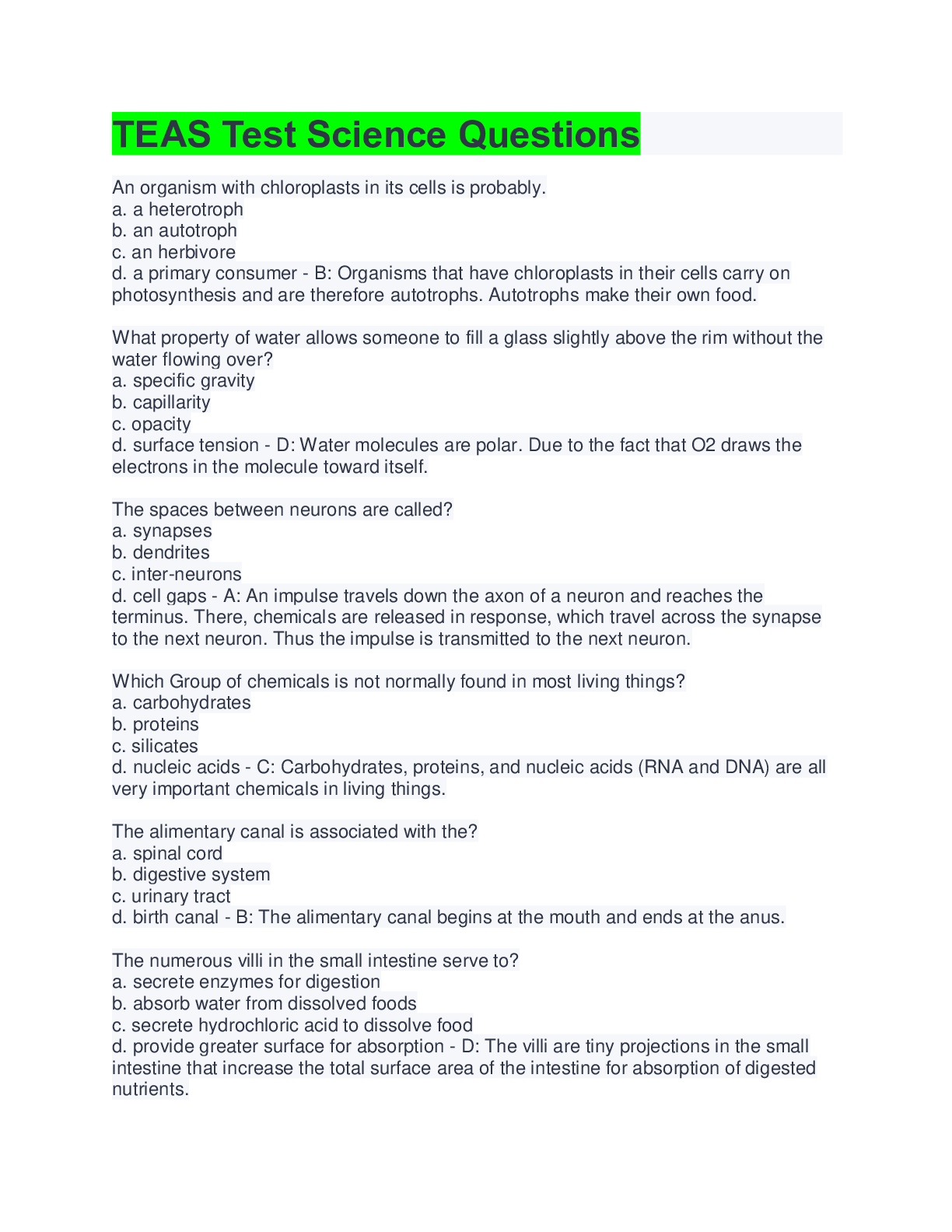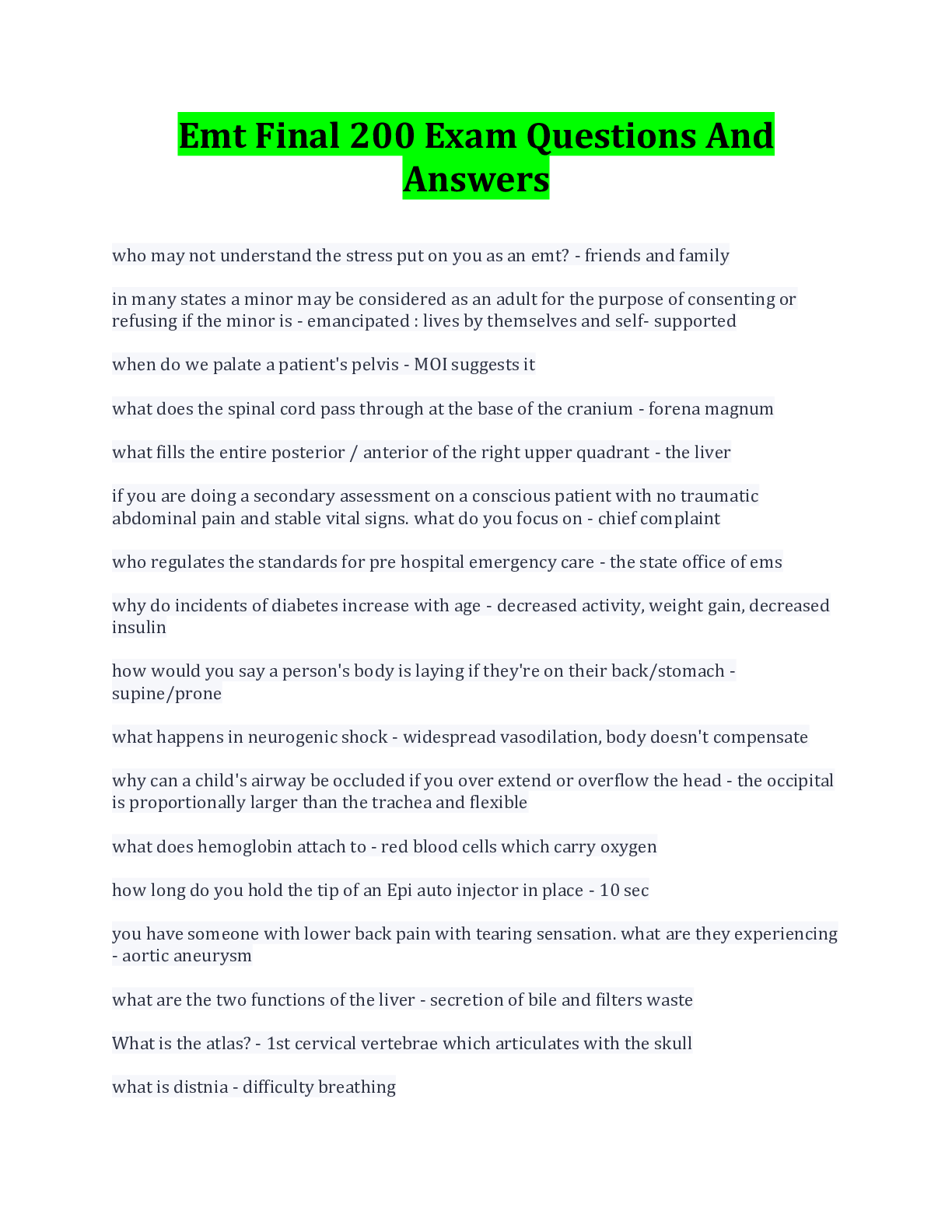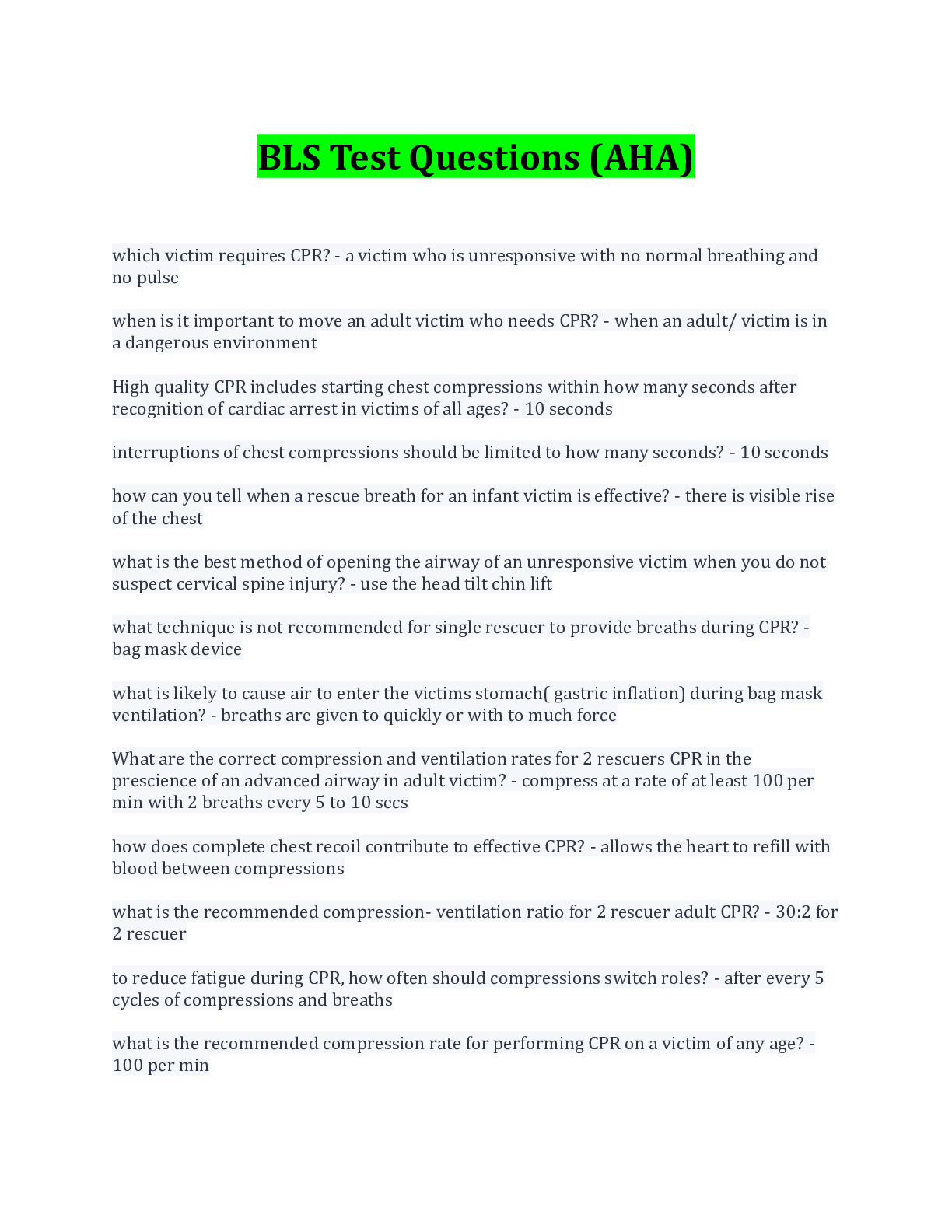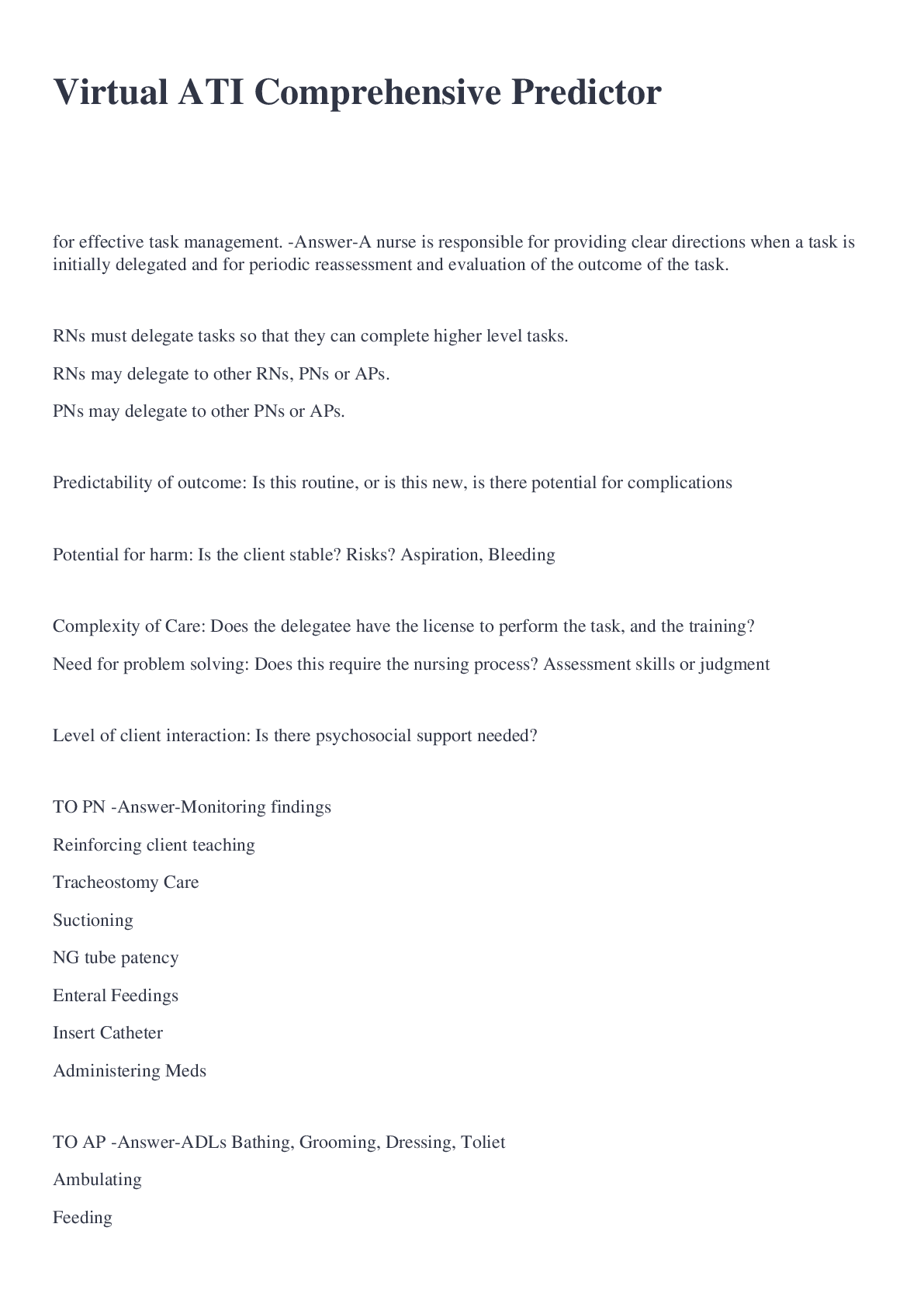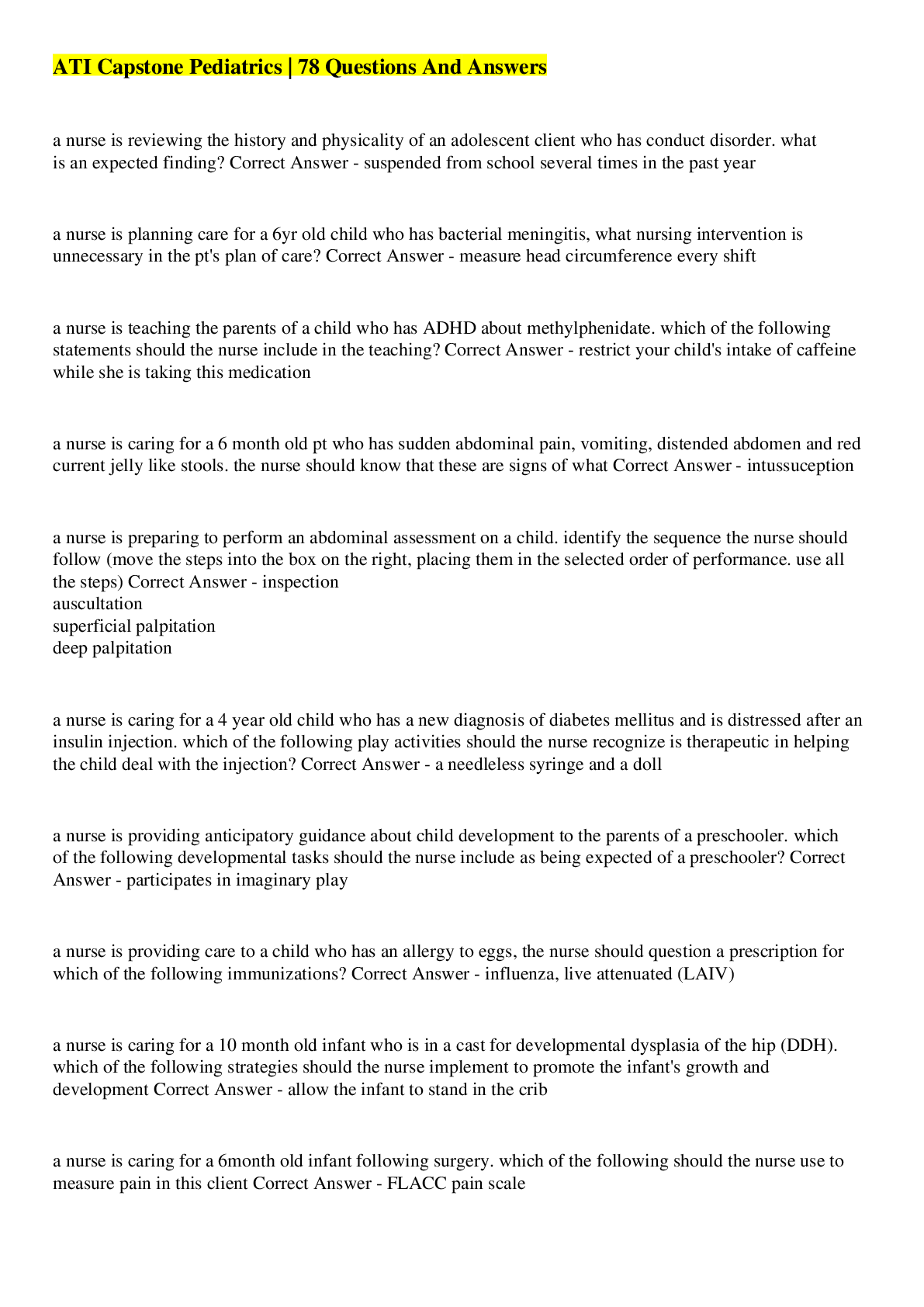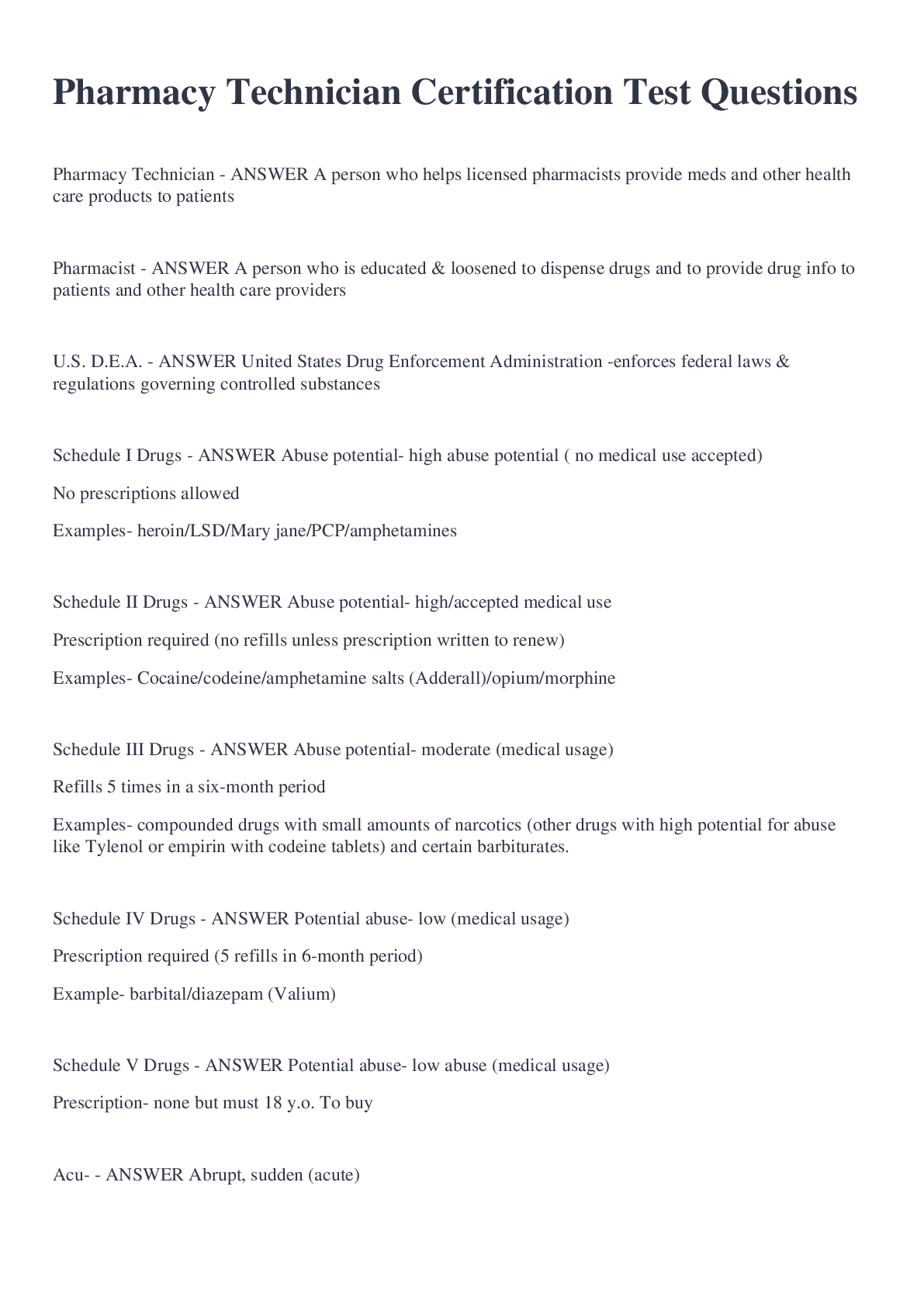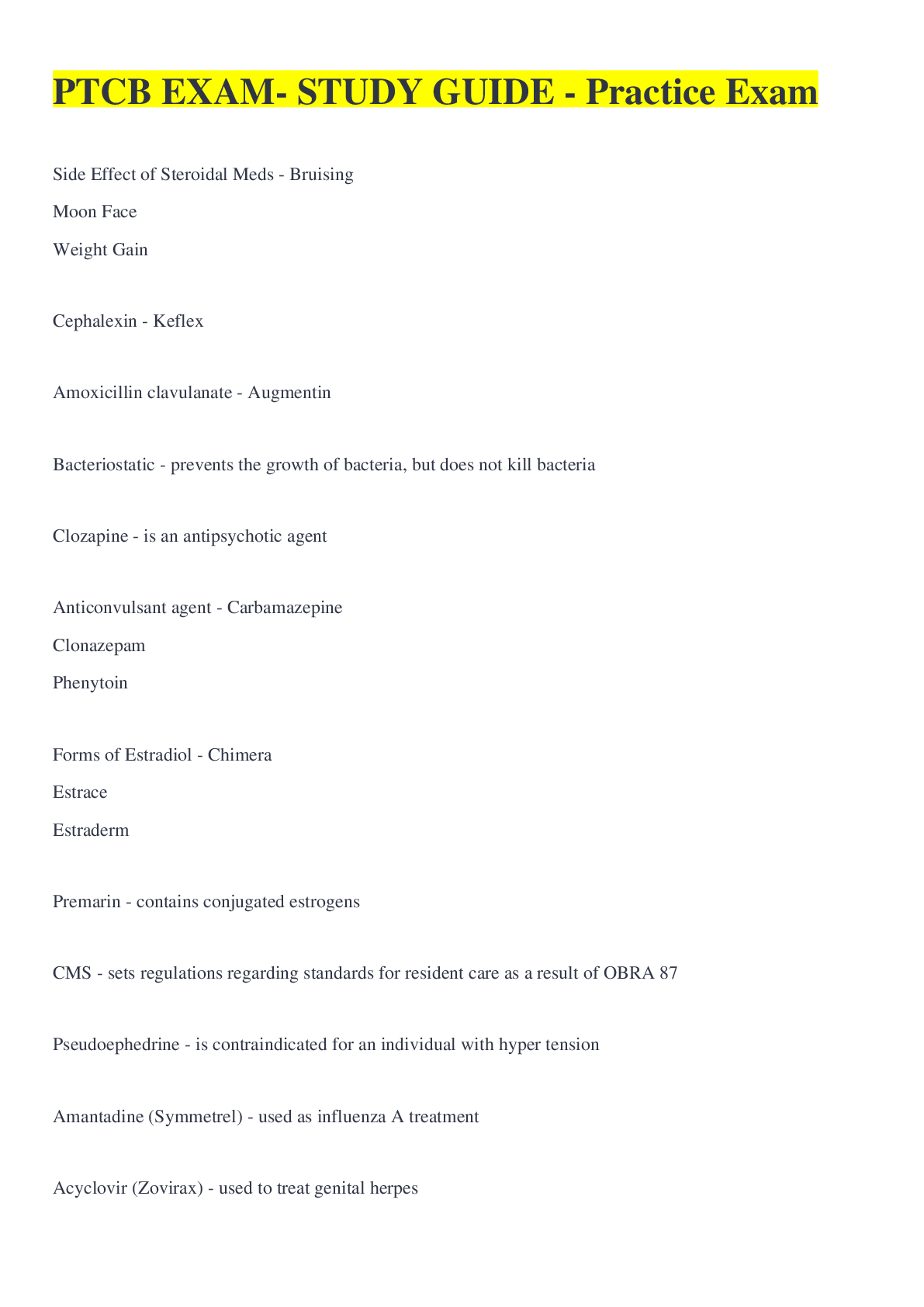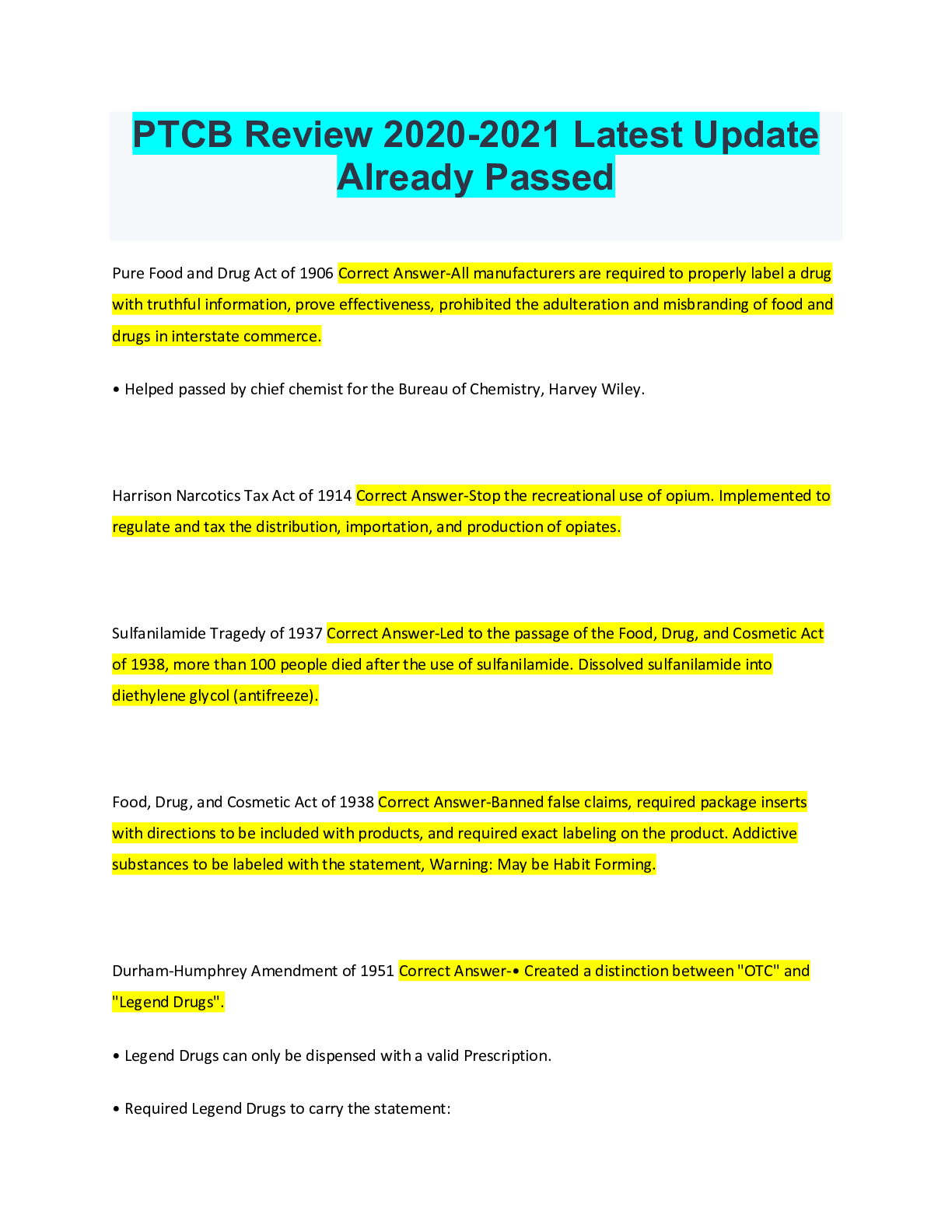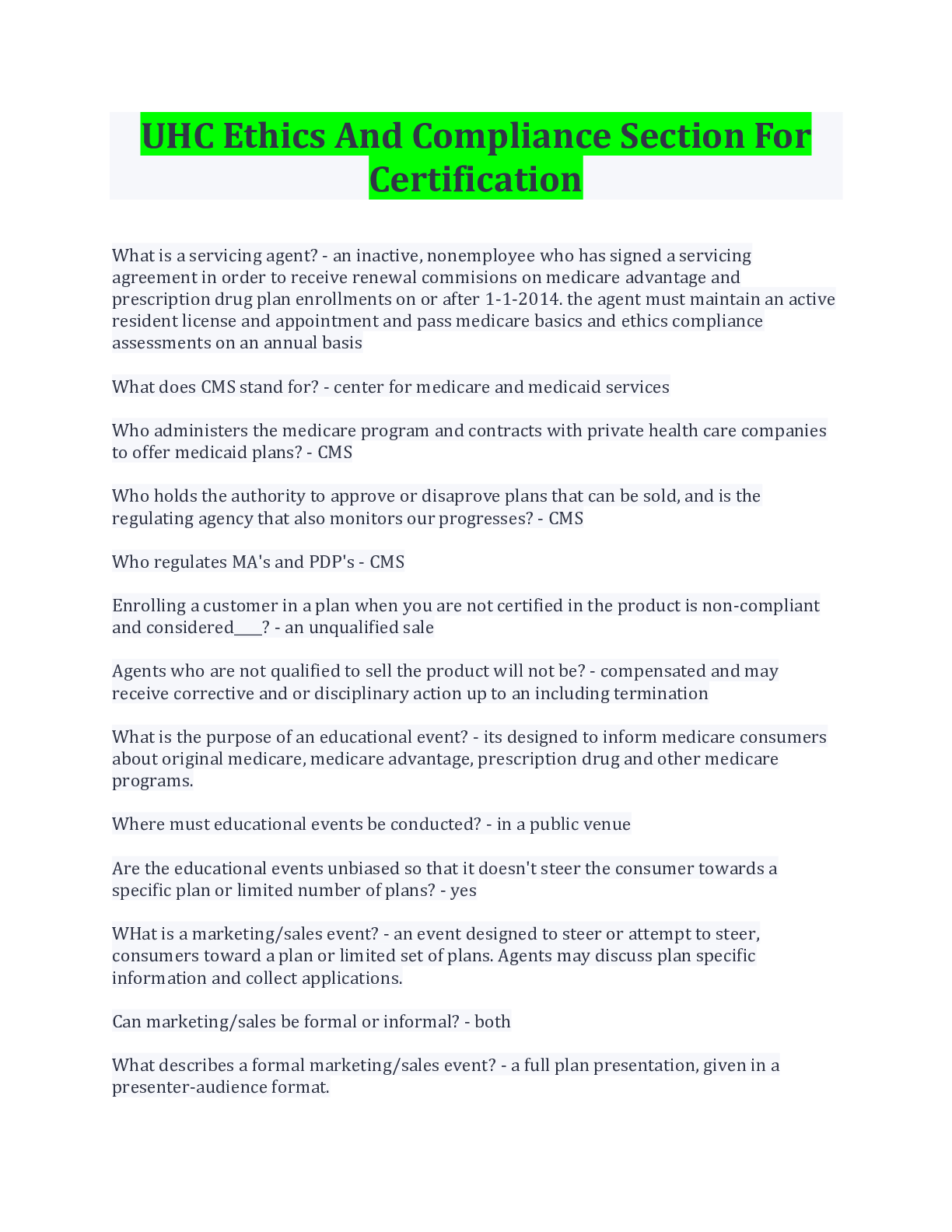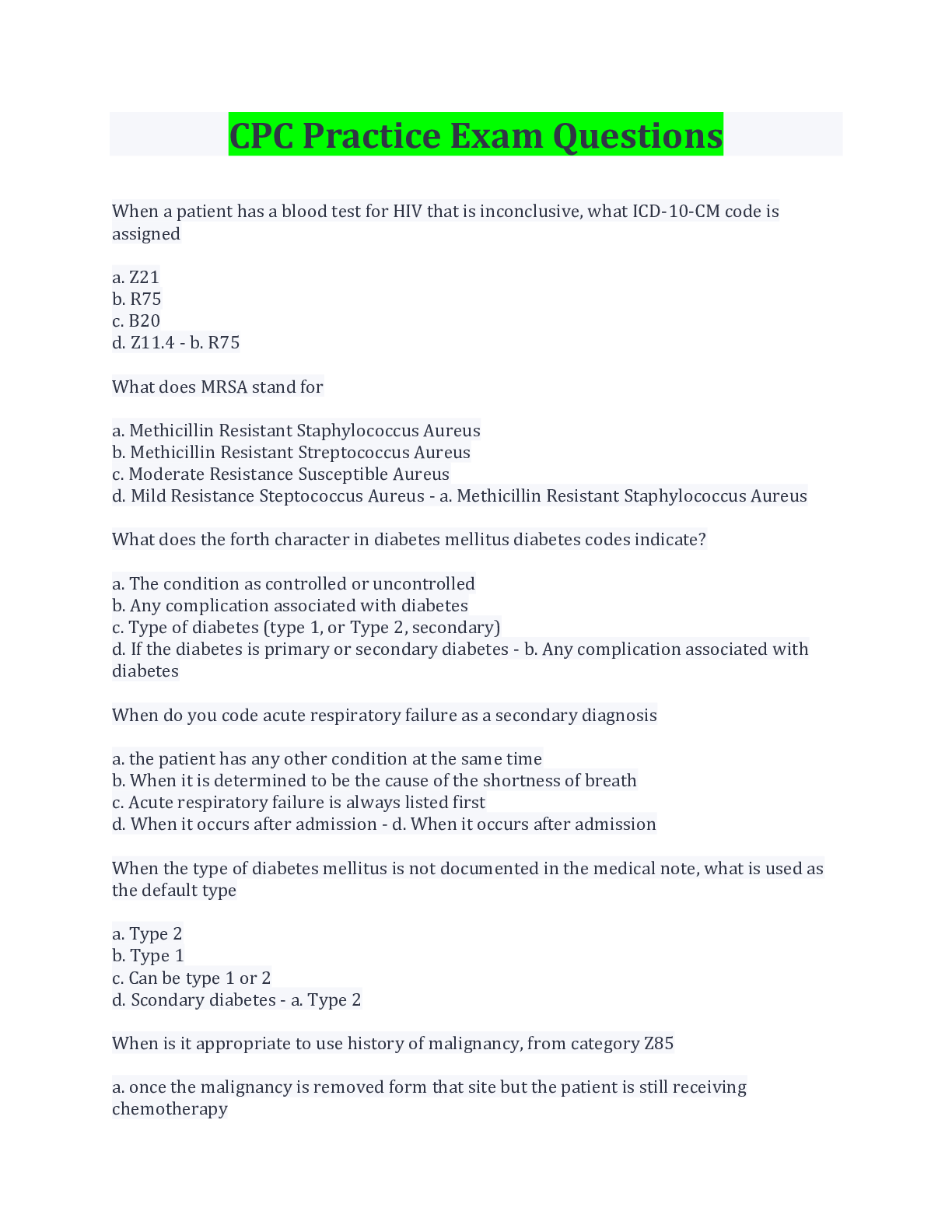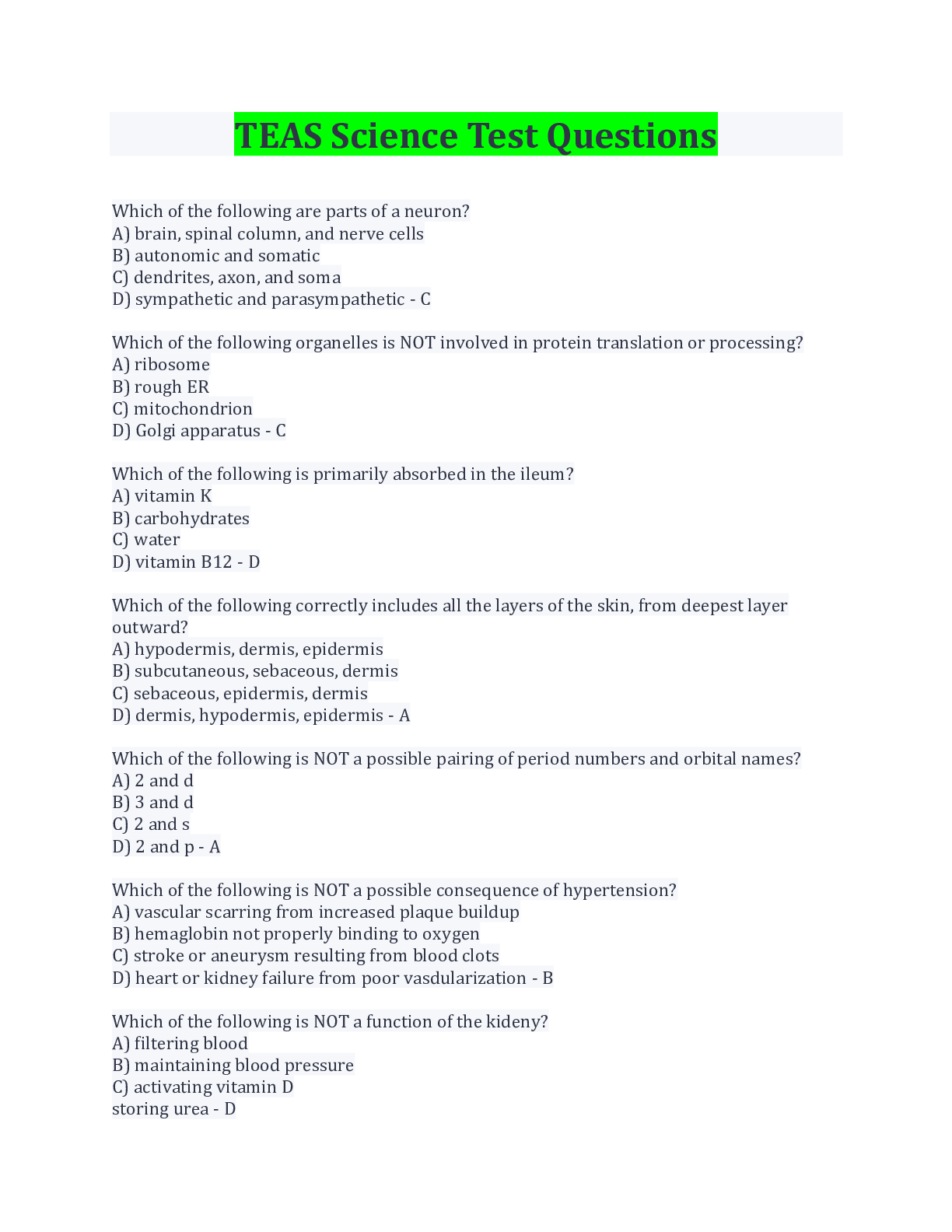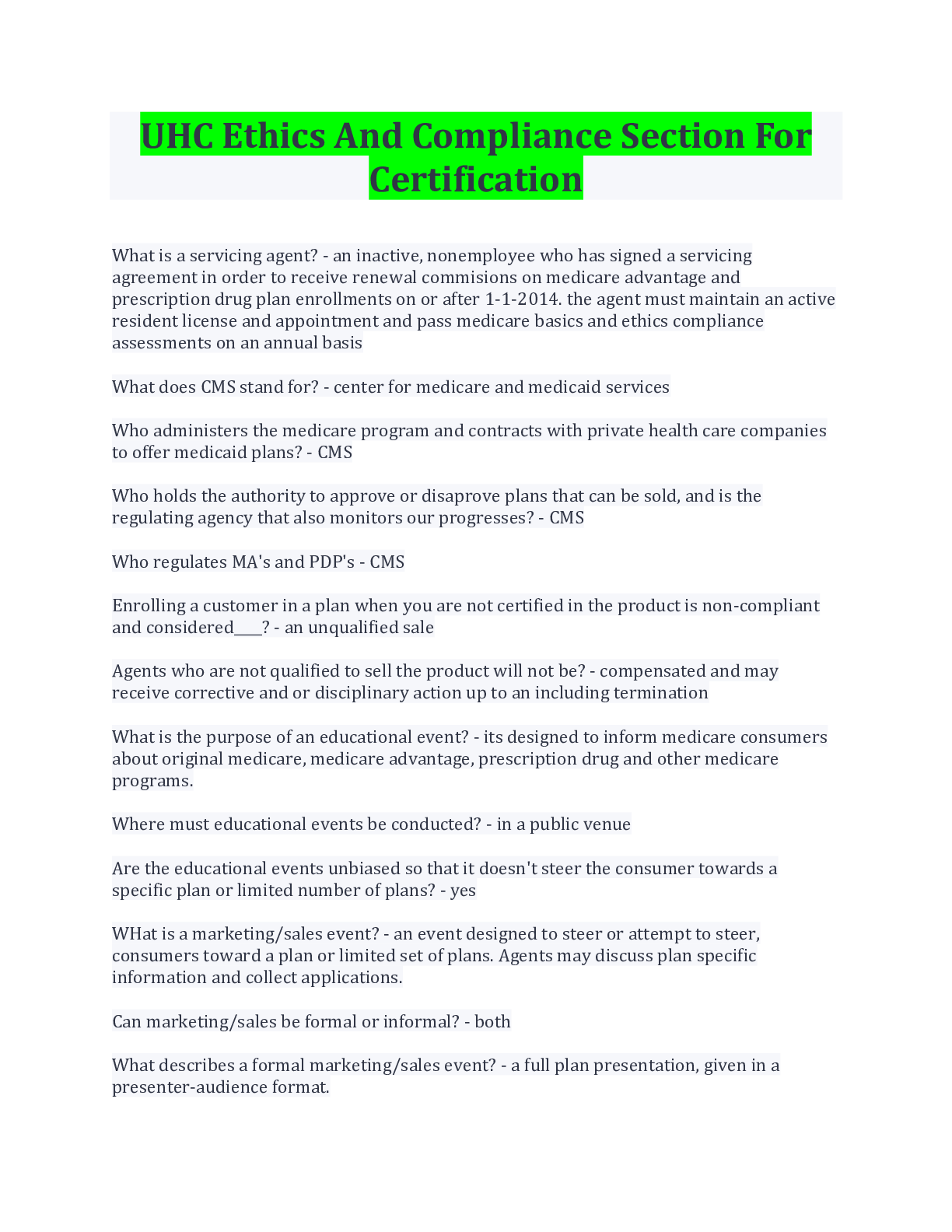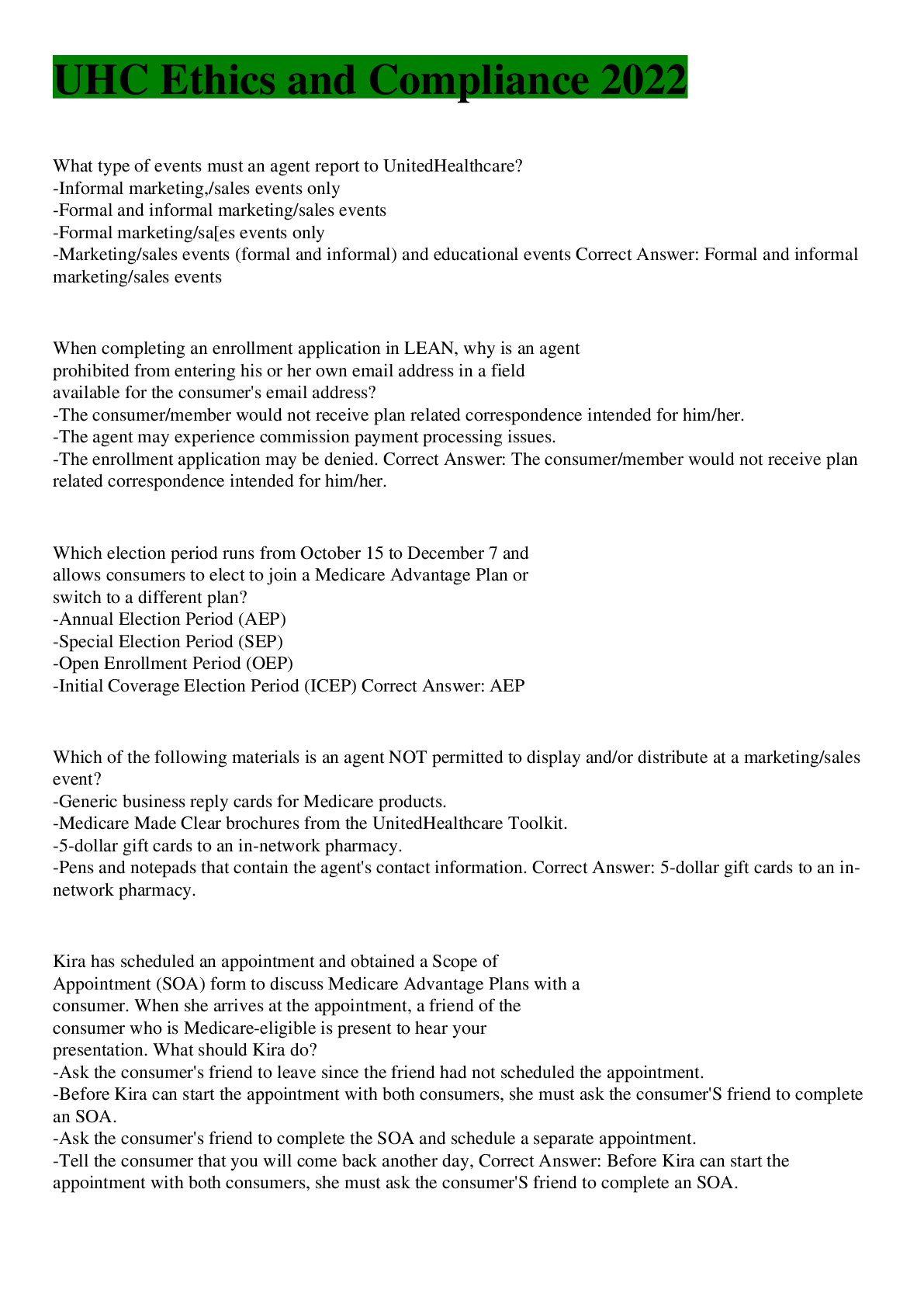NR 283 Patho Final Exam Concept Review( Complete Solution Rated A)
Document Content and Description Below
NR 283 Patho Final Exam Concept Review NR 283 Pathophysiology Final Exam Concept Review ***For all previous content covered on previous exams, please consult your previous concept review sheets. T... his is not an all-inclusive list for topics to be covered. Please be sure to consult your syllabus and learning plan. This is a comprehensive final. ***Be sure to cover pathophysiology, etiology, clinical manifestations, nursing considerations, diagnostic tests for the following topics: Endocrine SIADH- Syndrome of Inappropriate Diuretic Hormone Too much ADH (antidiuretic hormone ) secretion leads to water intoxication and hyponatremia Causes include trauma, stroke, malignancies (often in the lungs or pancreas), medications, and stress S/S include signs of fluid volume overload, changes in level of consciousness and mental status changes, weight gain, hypertension, tachycardia, anorexia, nausea, vomiting, hyponatremia, concentrated urine, decreased urine output, serum osmolality decreased Nursing considerations include monitoring vital signs and cardiac and neurological status, providing a safe environment, particularly for the patient with changes in level of consciousness or mental status, monitoring intake and output and weight daily; monitoring fluid and electrolyte balance, monitoring serum and urine osmolality; restriction of fluids DI (Diabetes Insipidus)- Kidney tubules fail to reabsorb water Etiology includes stroke or trauma or may be idiopathic S/S include excretion of large amounts of dilute urine, polydipsia, dehydration (decreased skin turgor and dry mucous membranes), inability to concentrate urine, increased urine output, urine very dilute, Low urinary specific gravity, fatigue, muscle pain and weakness, headache, postural hypotension that may progress to vascular collapse without rehydration, tachycardia, hypernatremia Nursing Considerations: monitor vital signs and neurological and cardiovascular status, provide a safe environment, particularly for the patient with postural hypotension; monitor electrolyte levels and for signs of dehydration; maintain patient intake of adequate fluids; monitor intake and ouput, weight, serum osmolality and specific gravity of urine; instruct the patient to avoid foods and/or liquids that produce diuresis [Show More]
Last updated: 1 year ago
Preview 1 out of 26 pages
.png)
Reviews( 0 )
Document information
Connected school, study & course
About the document
Uploaded On
Jun 23, 2021
Number of pages
26
Written in
Additional information
This document has been written for:
Uploaded
Jun 23, 2021
Downloads
0
Views
31

.png)
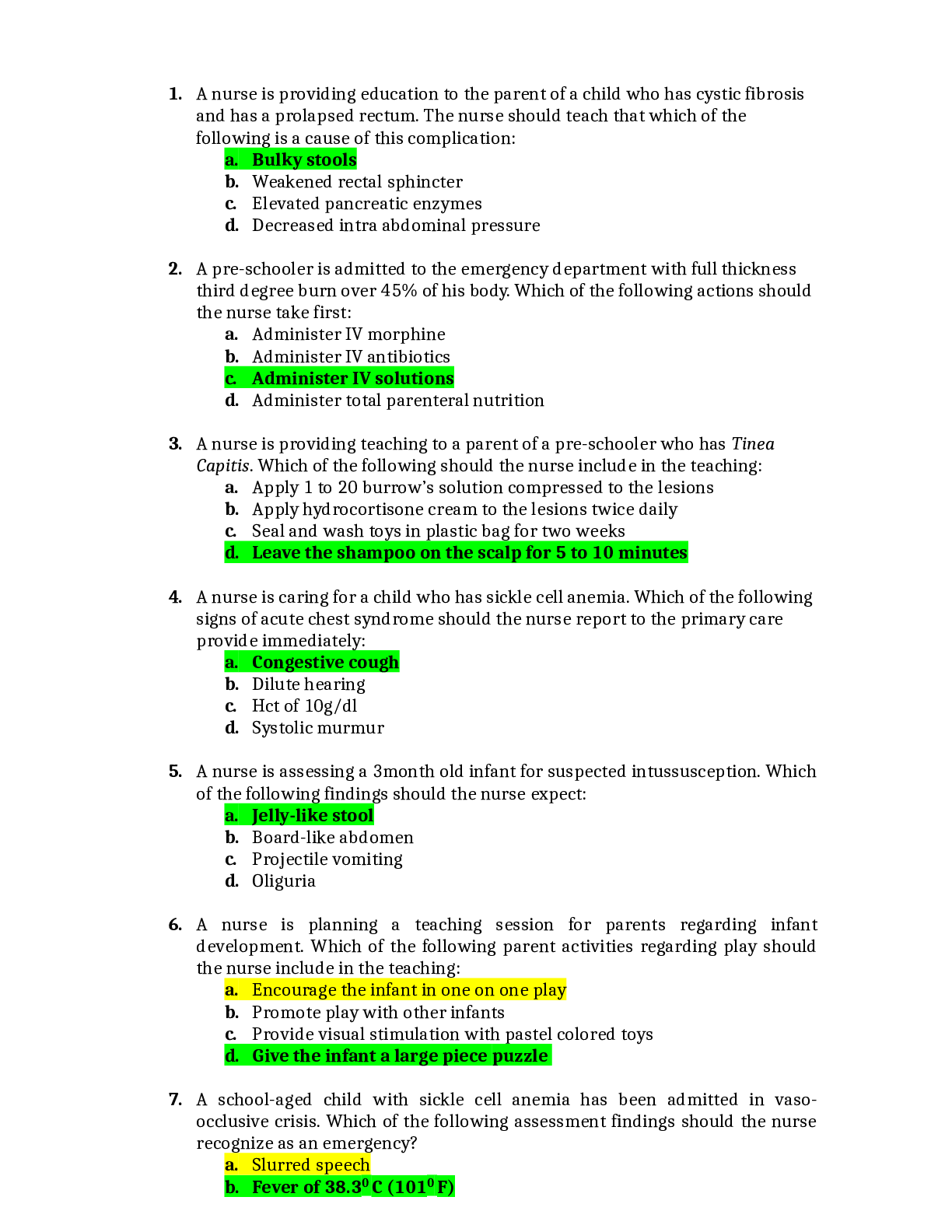
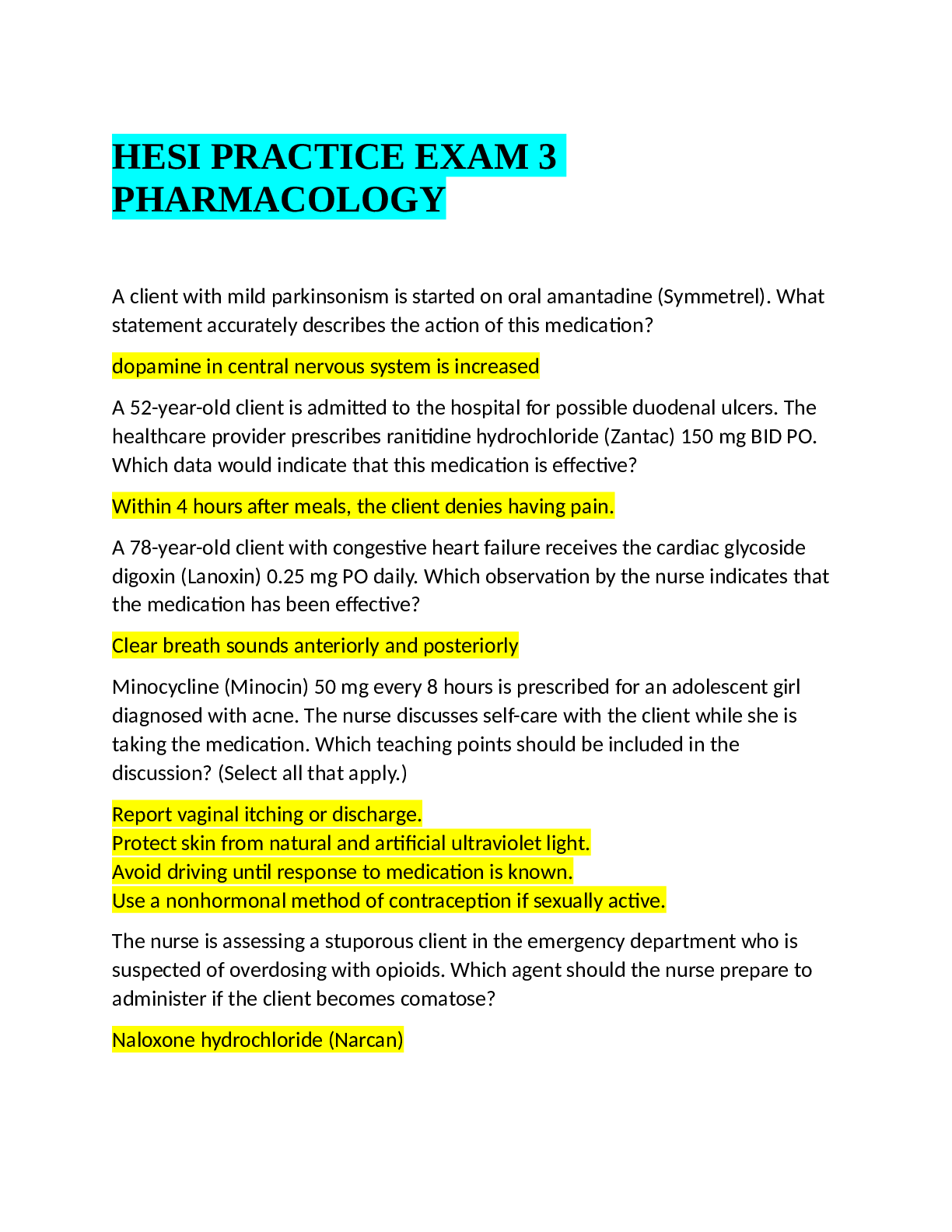
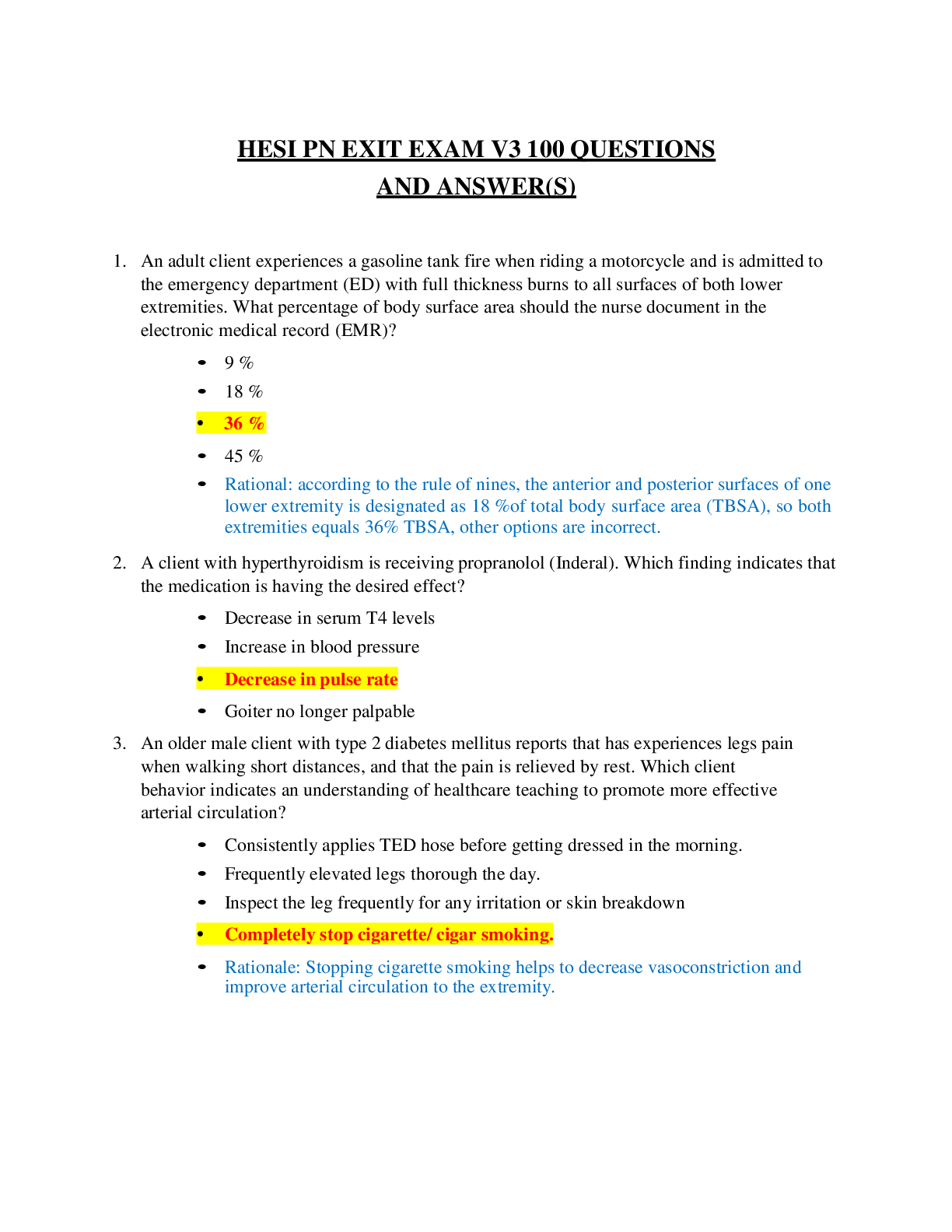
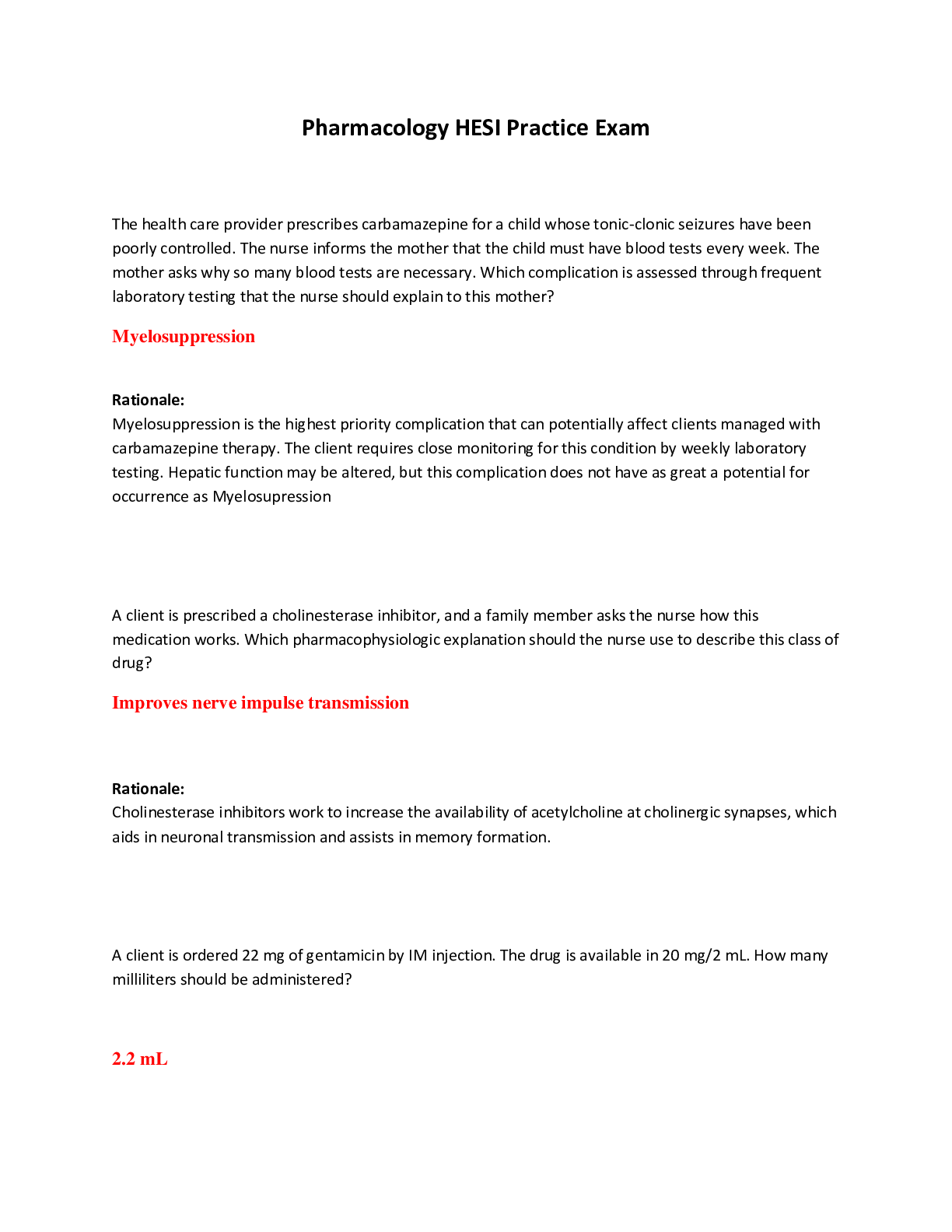
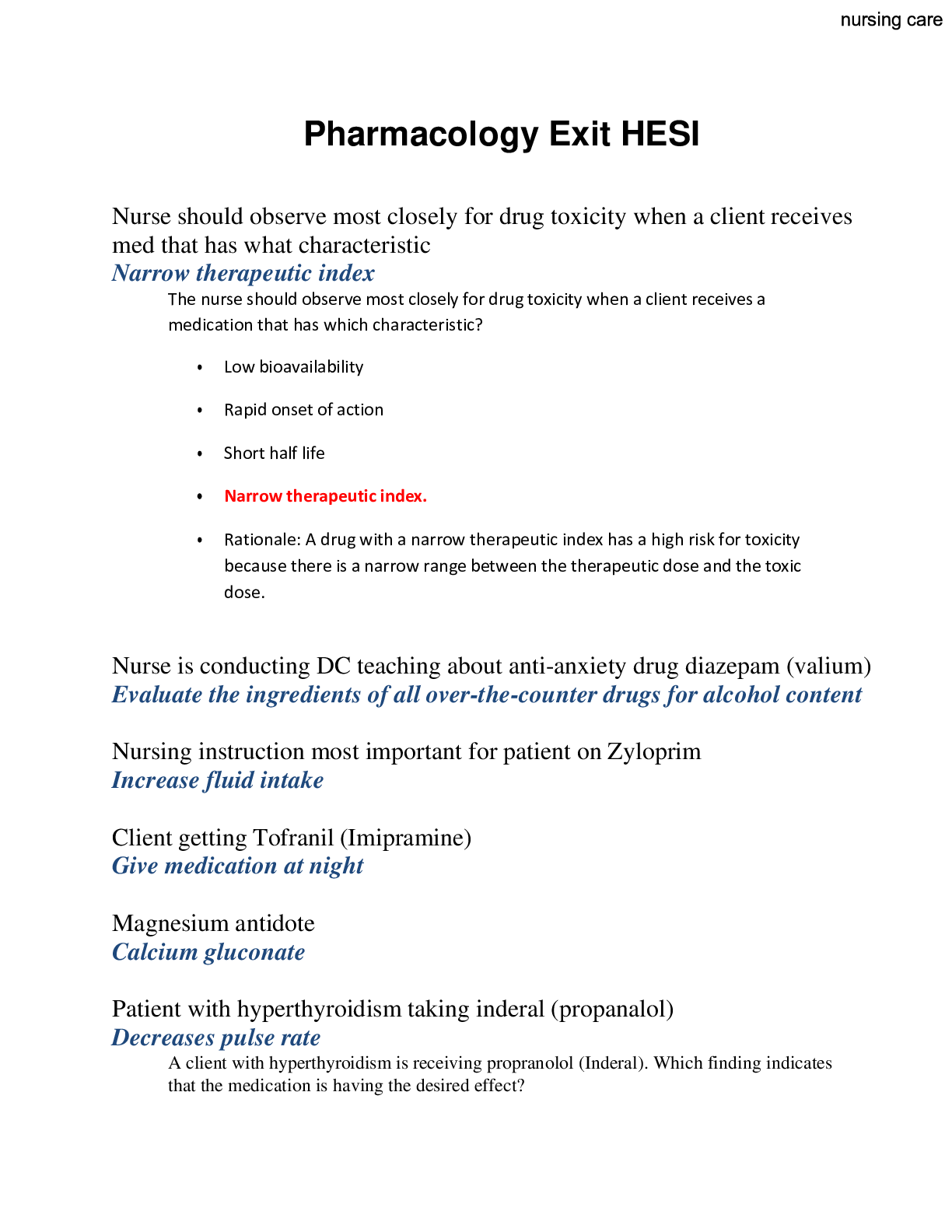
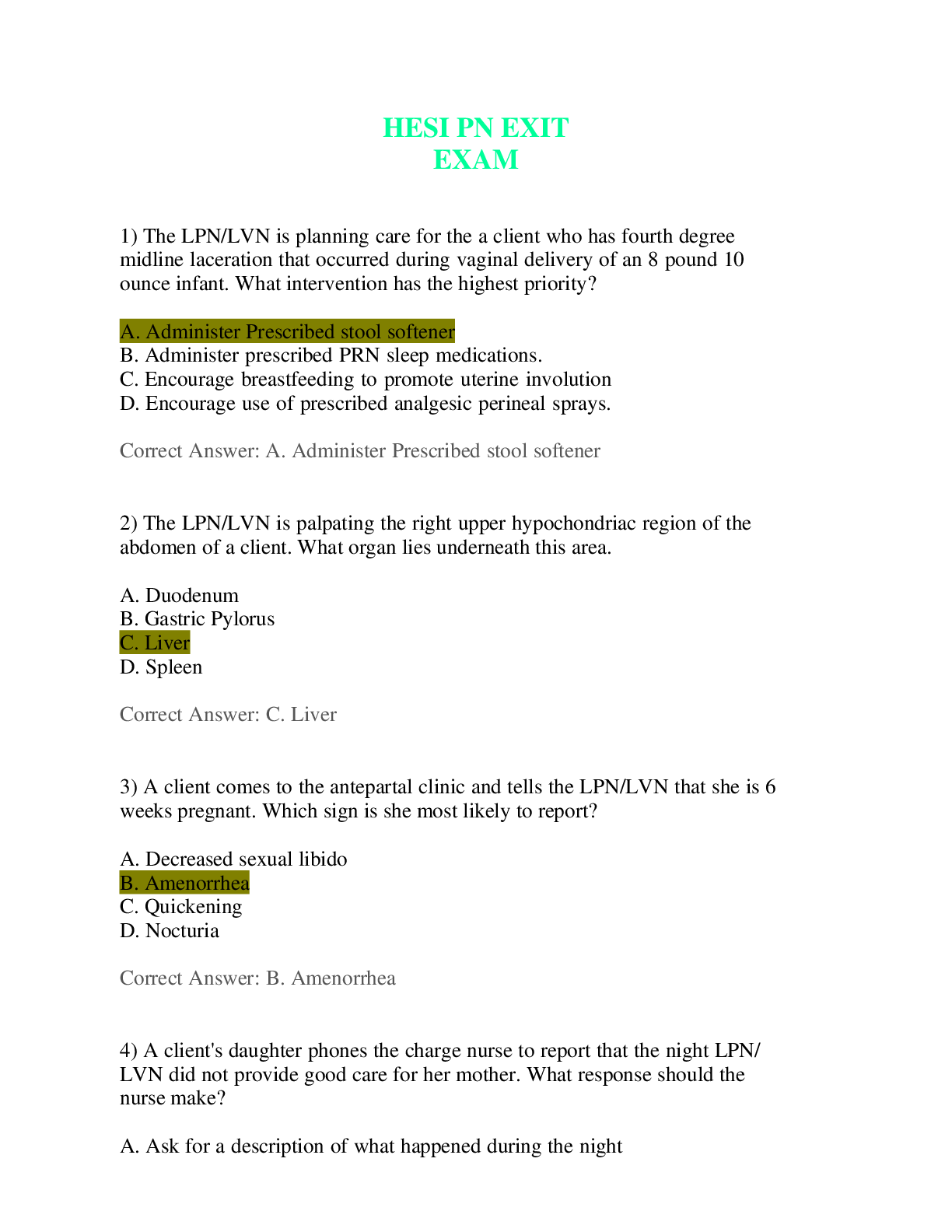

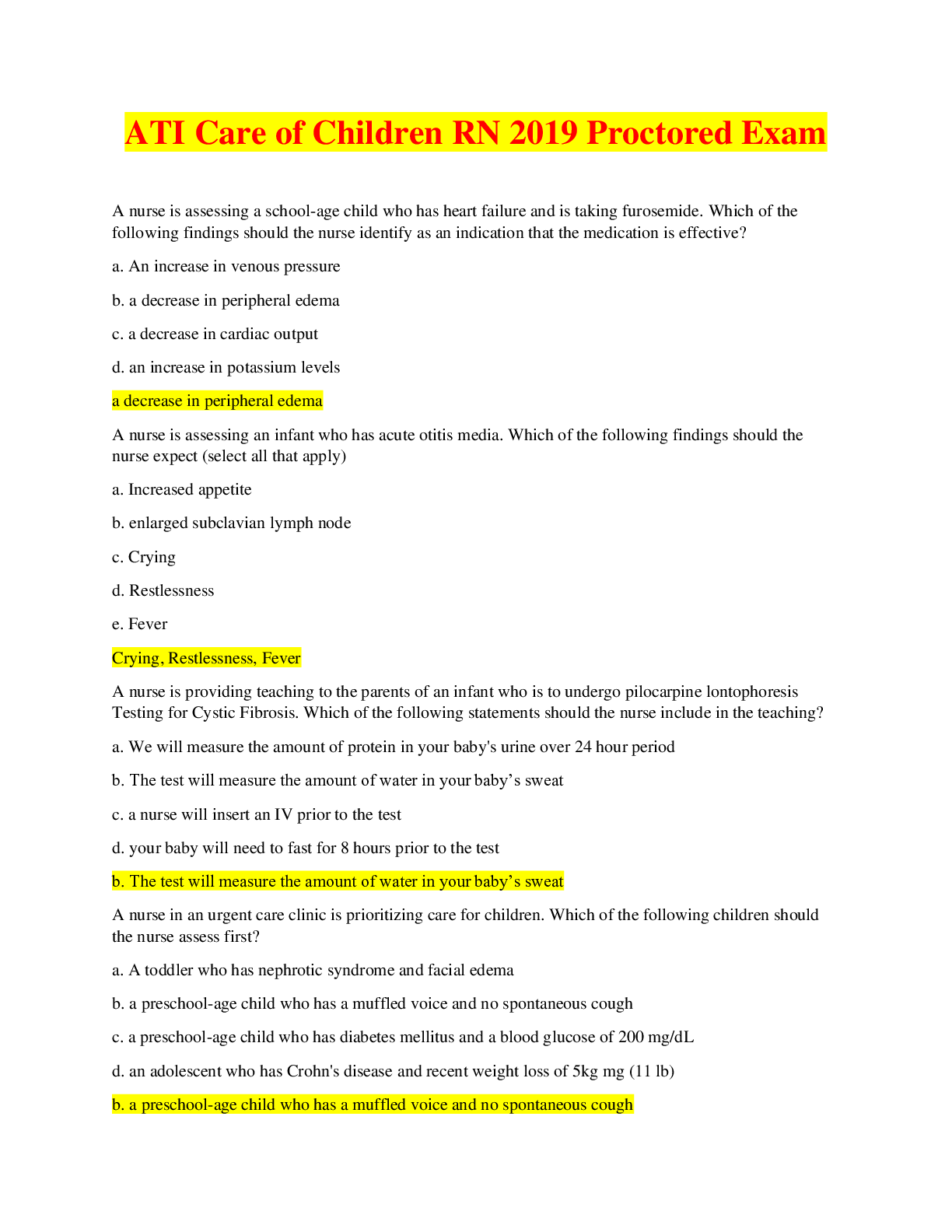
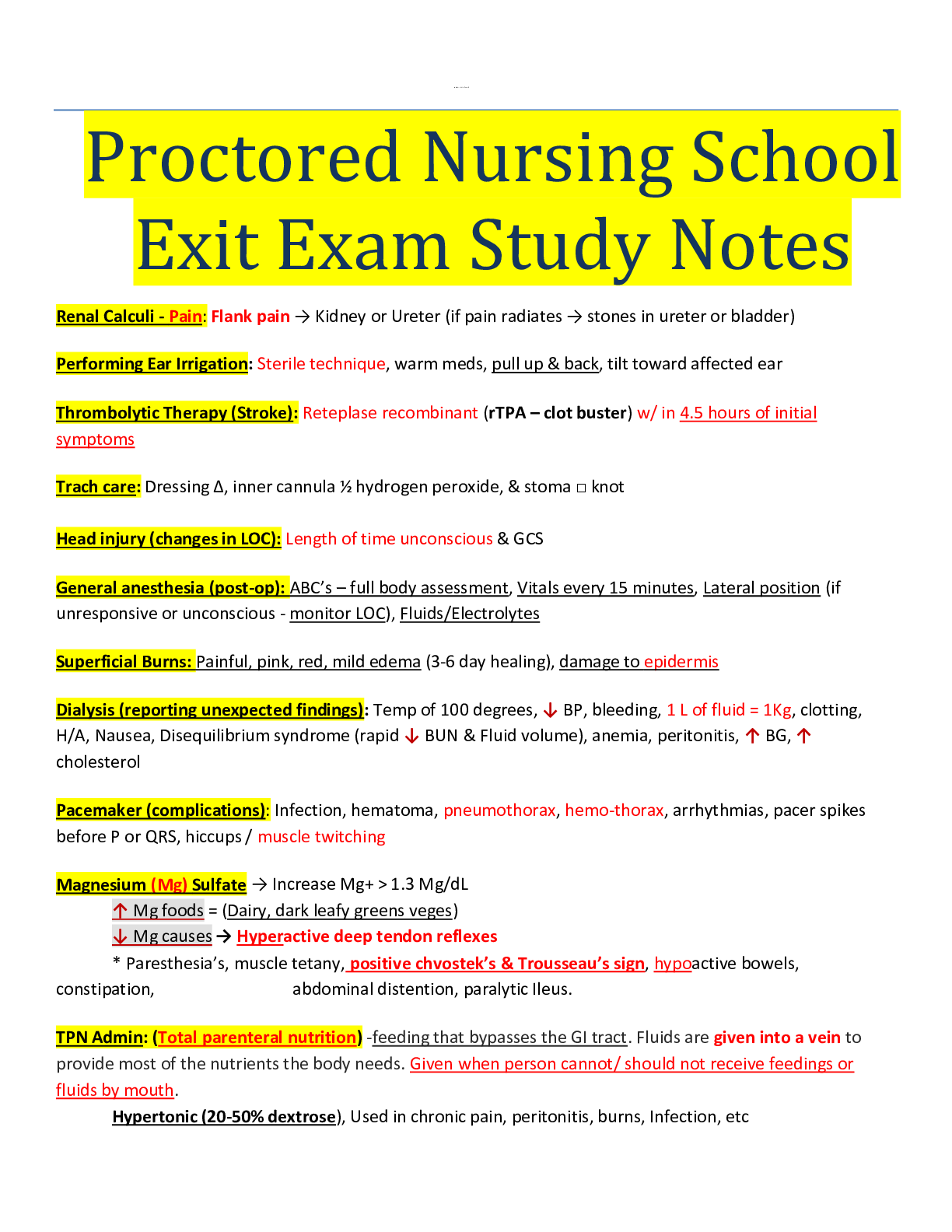
.png)
